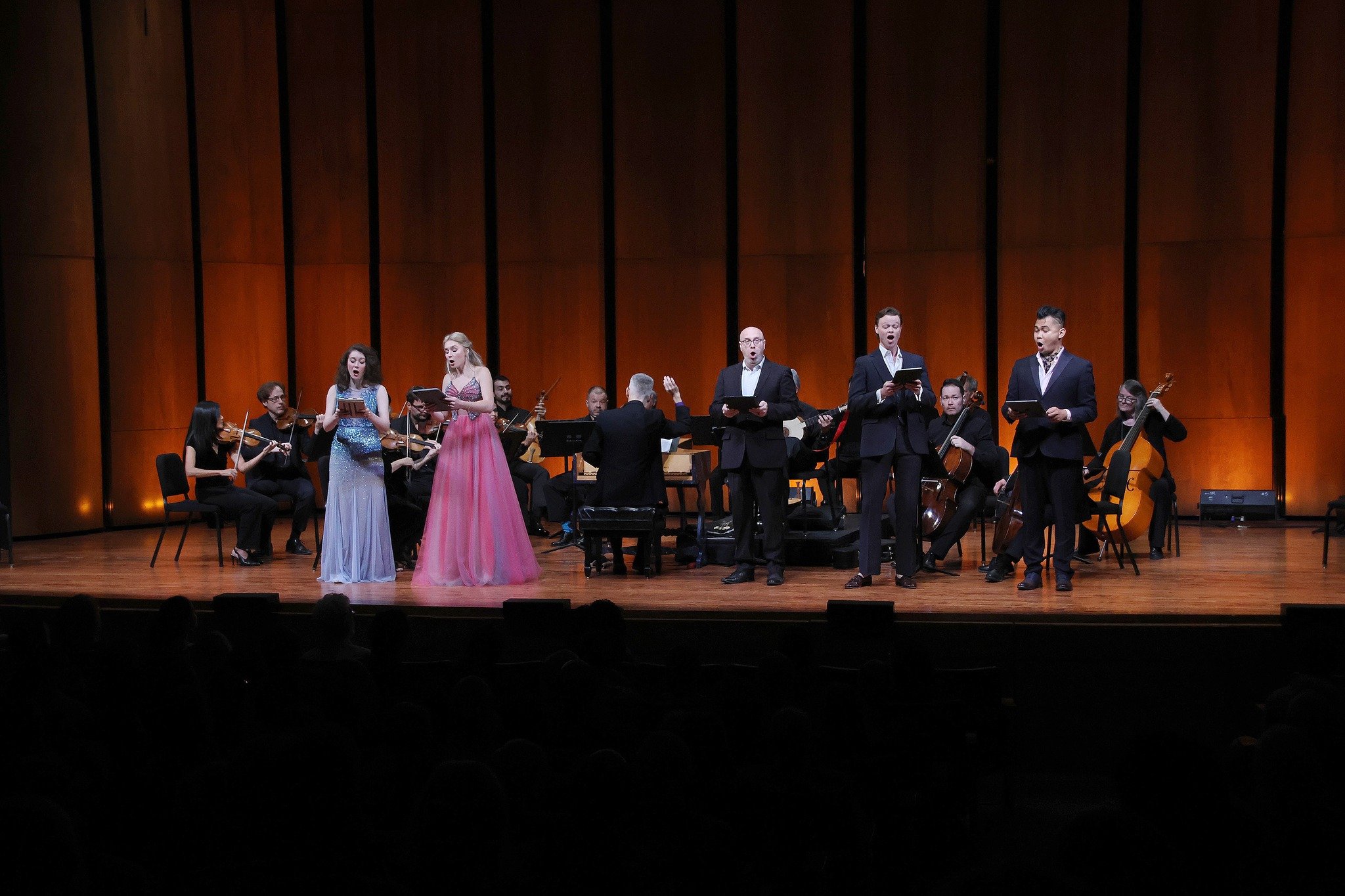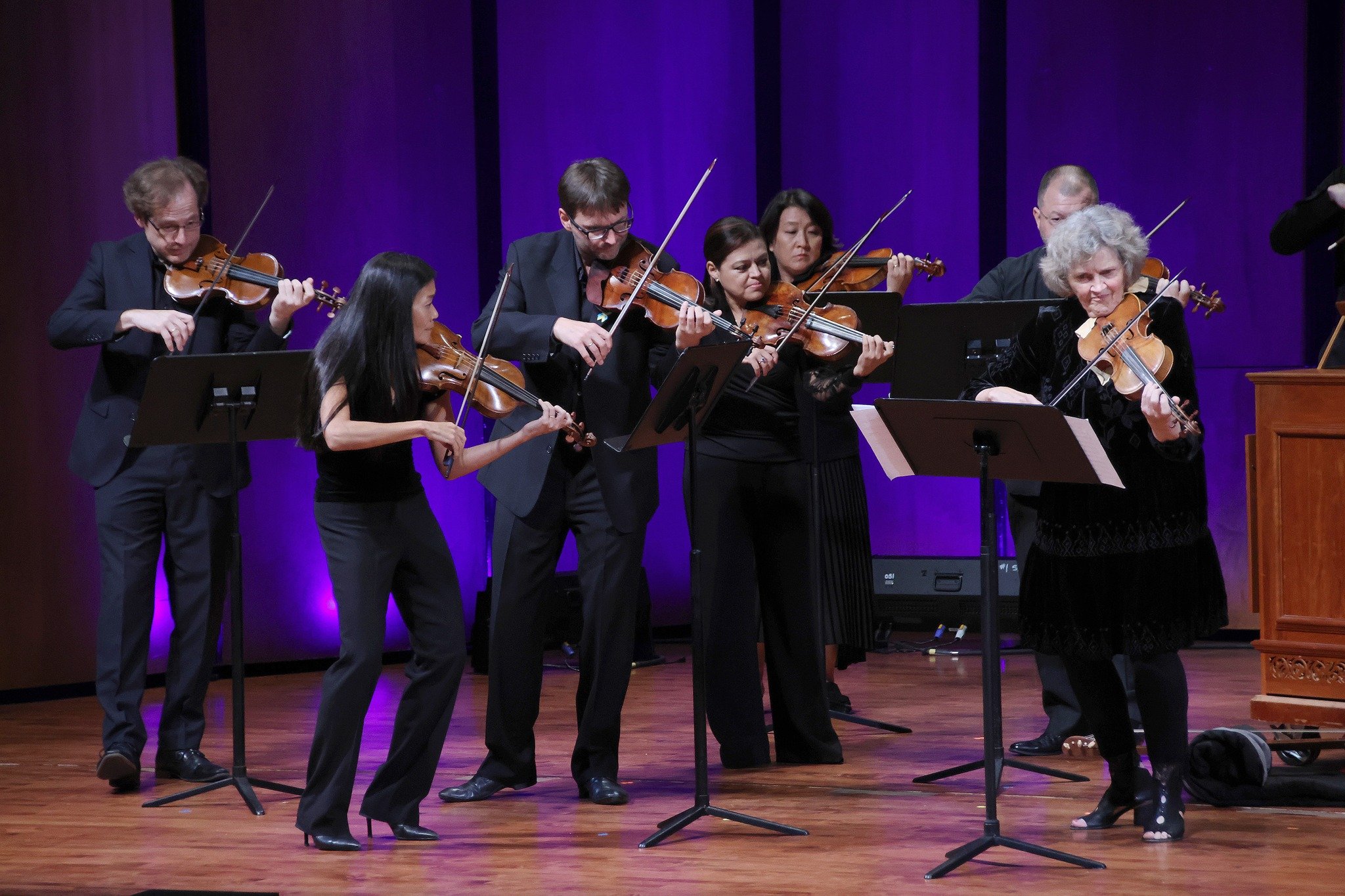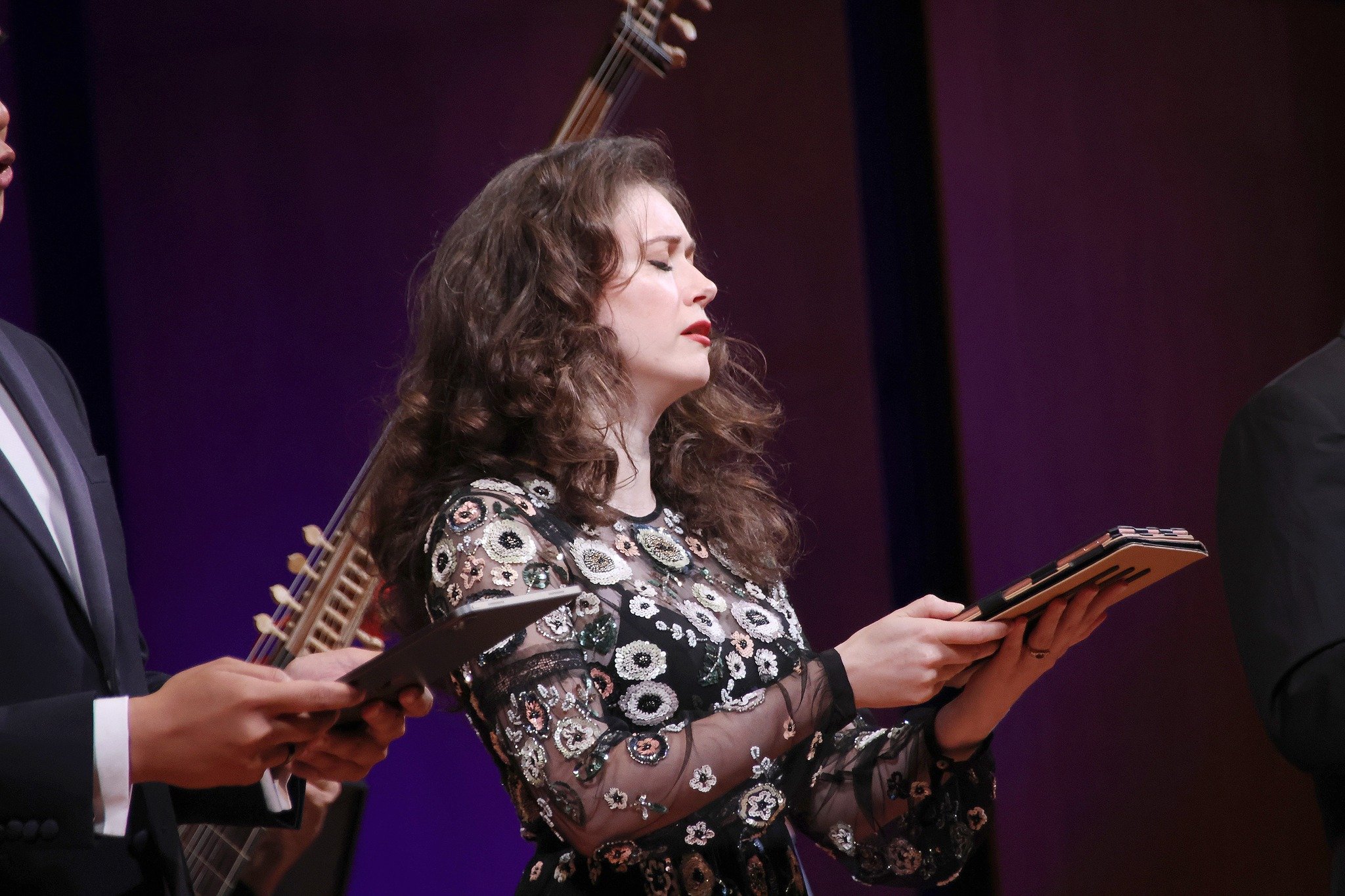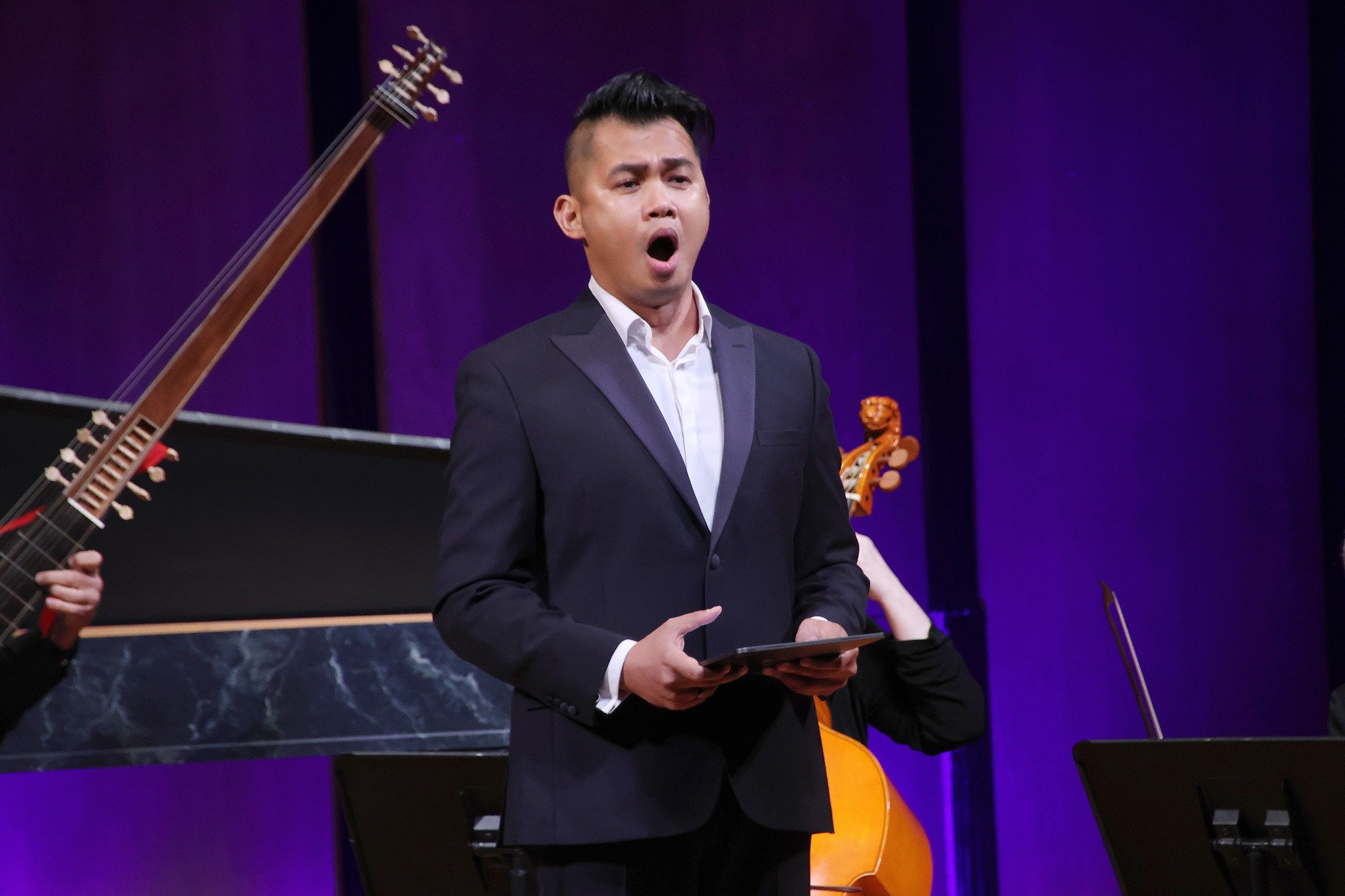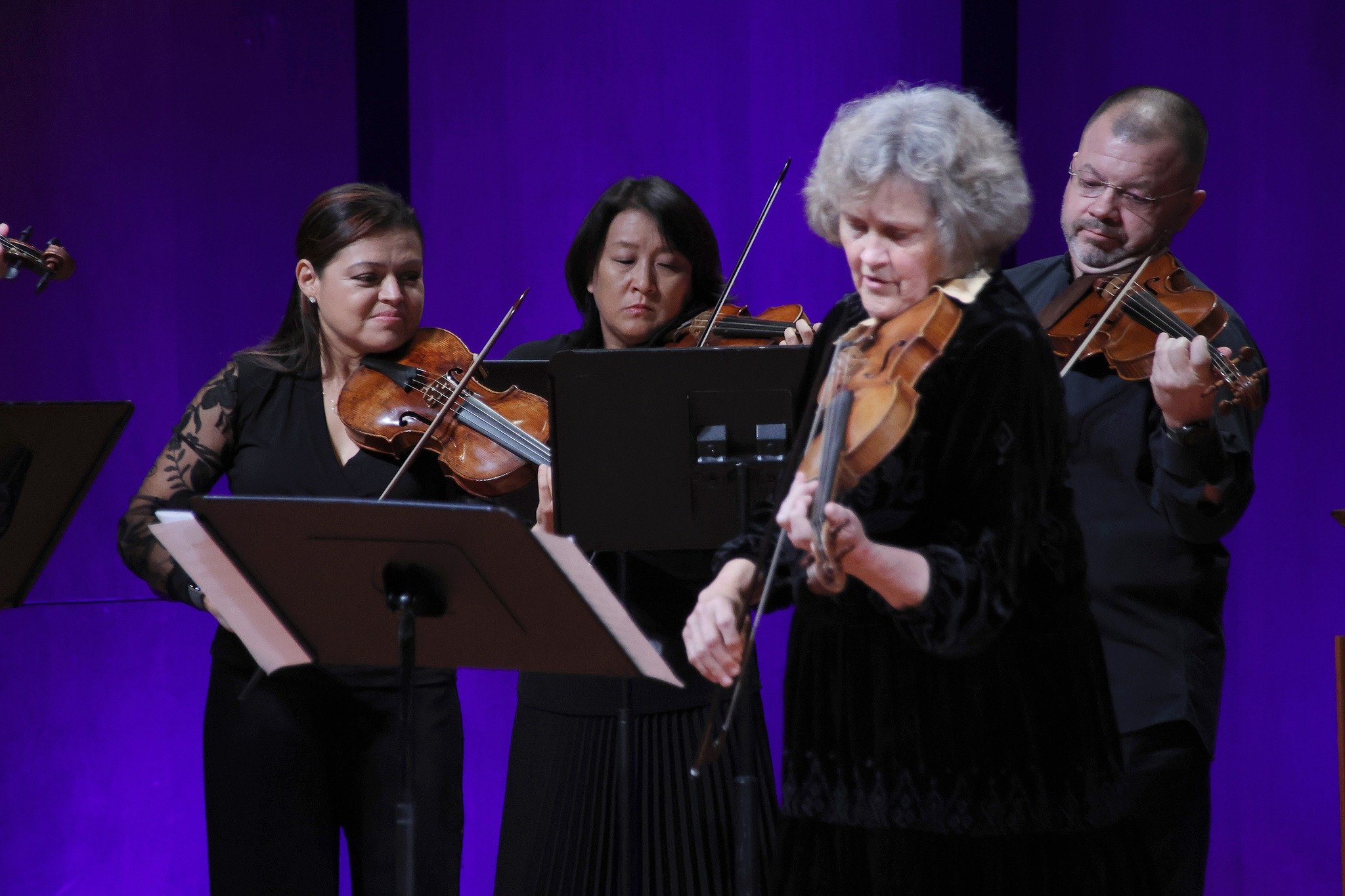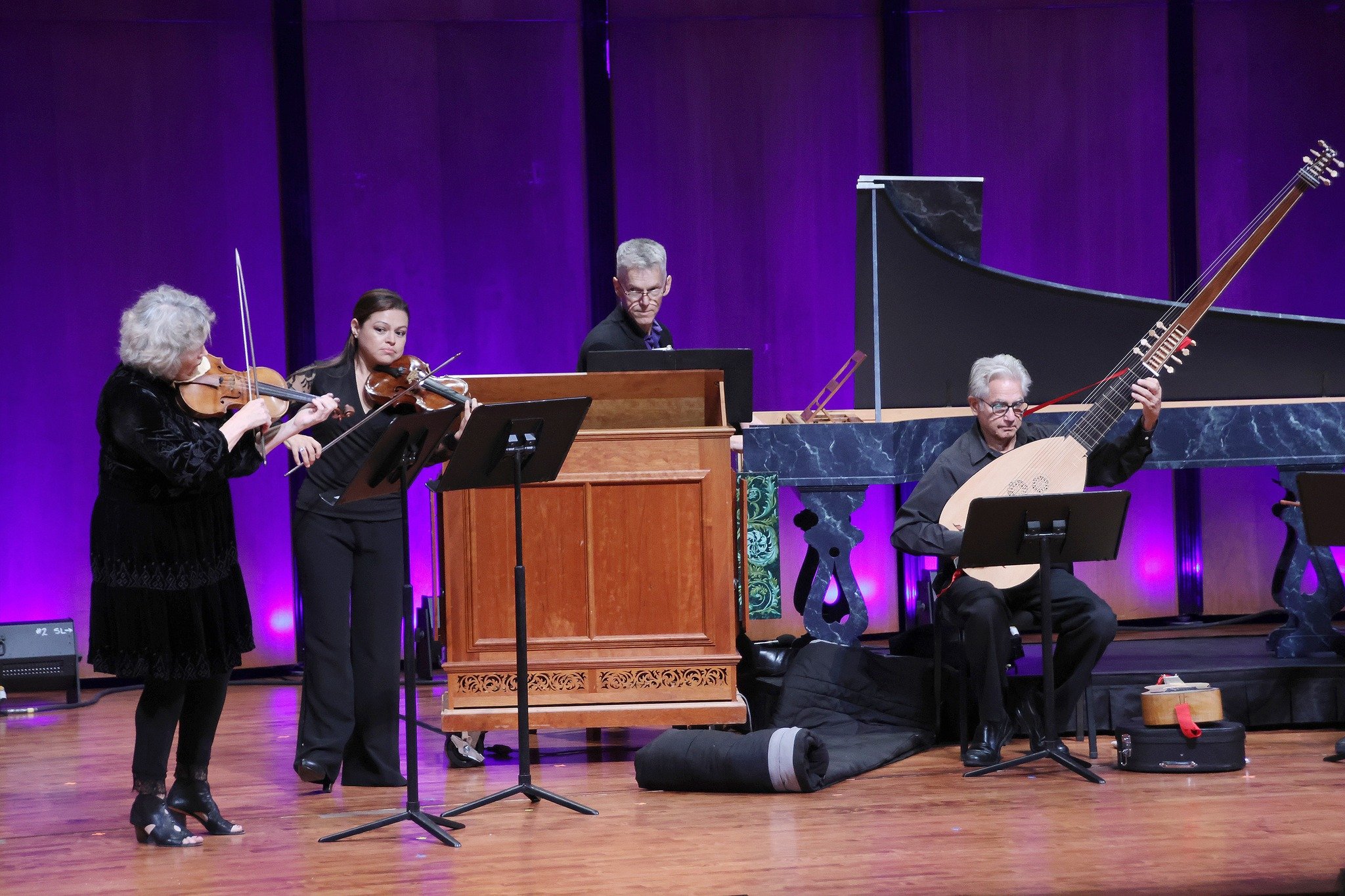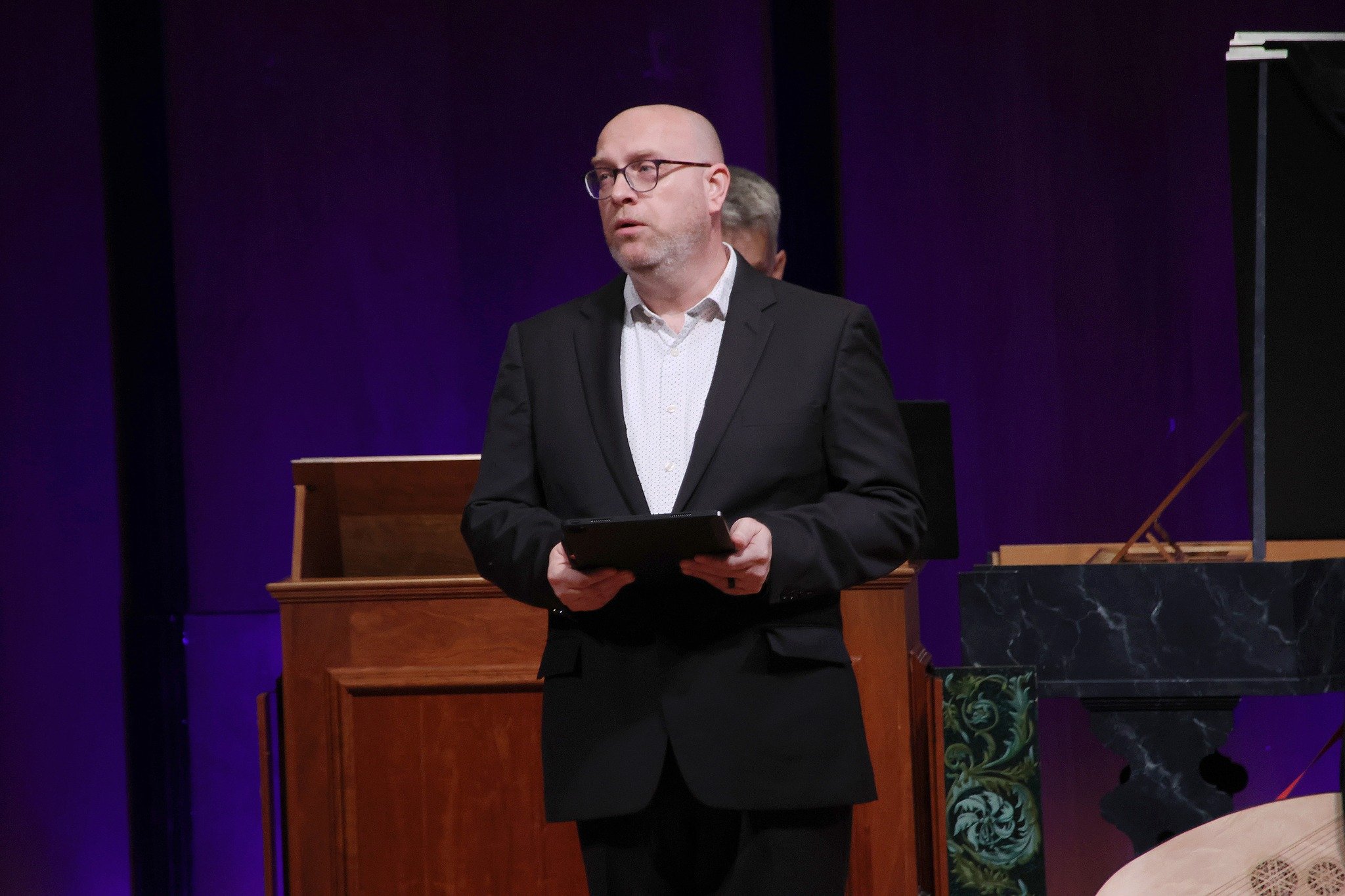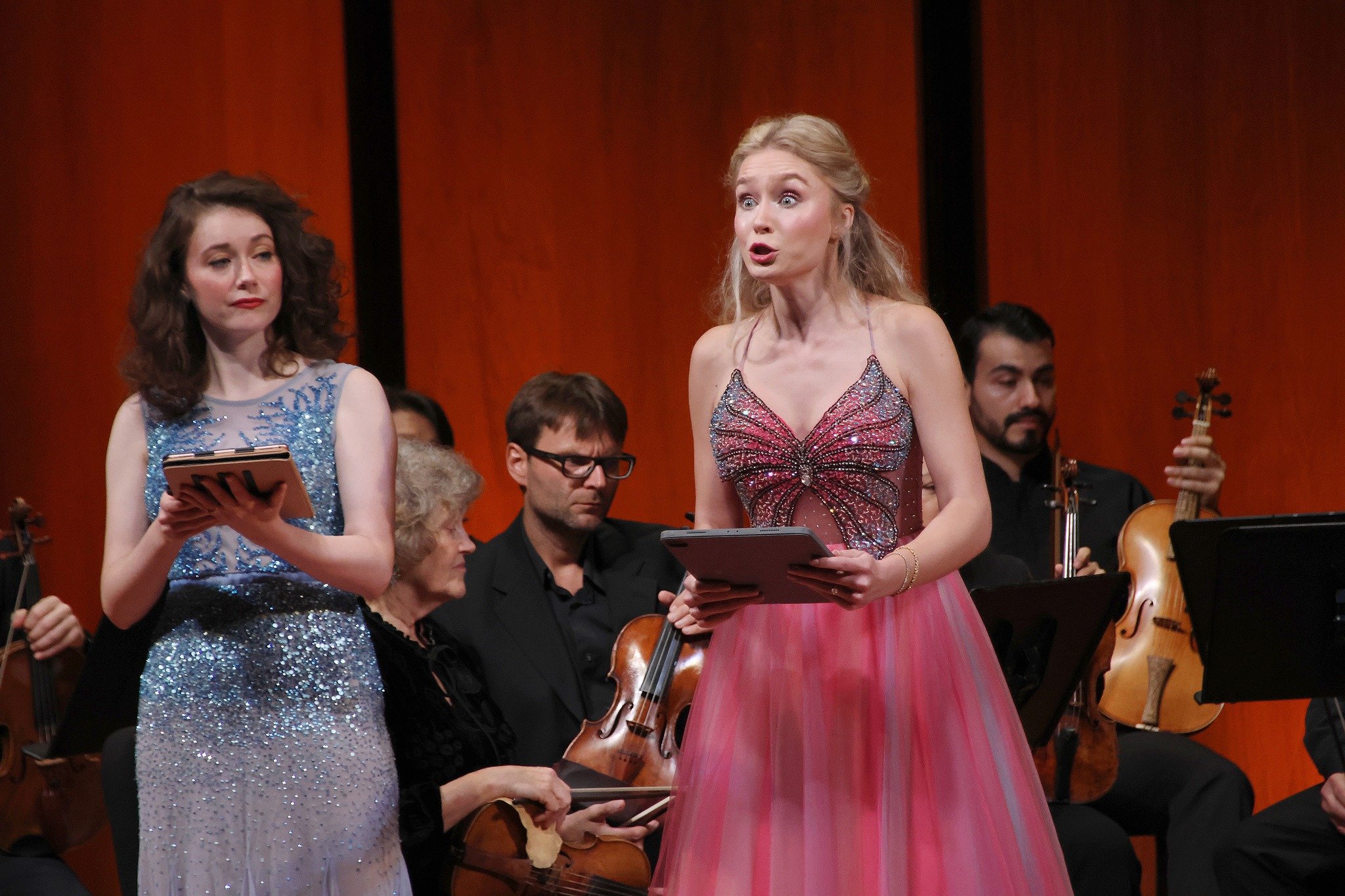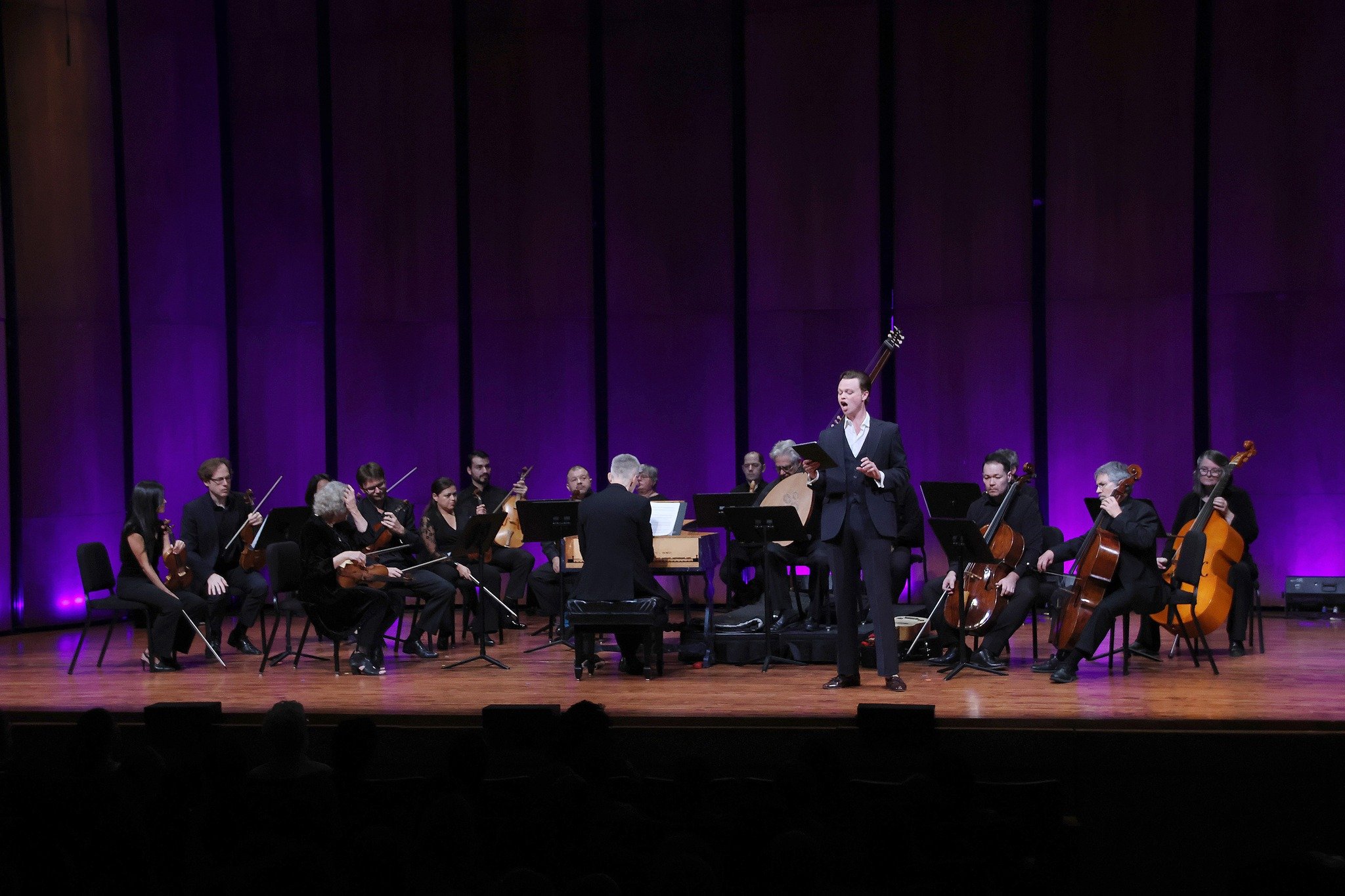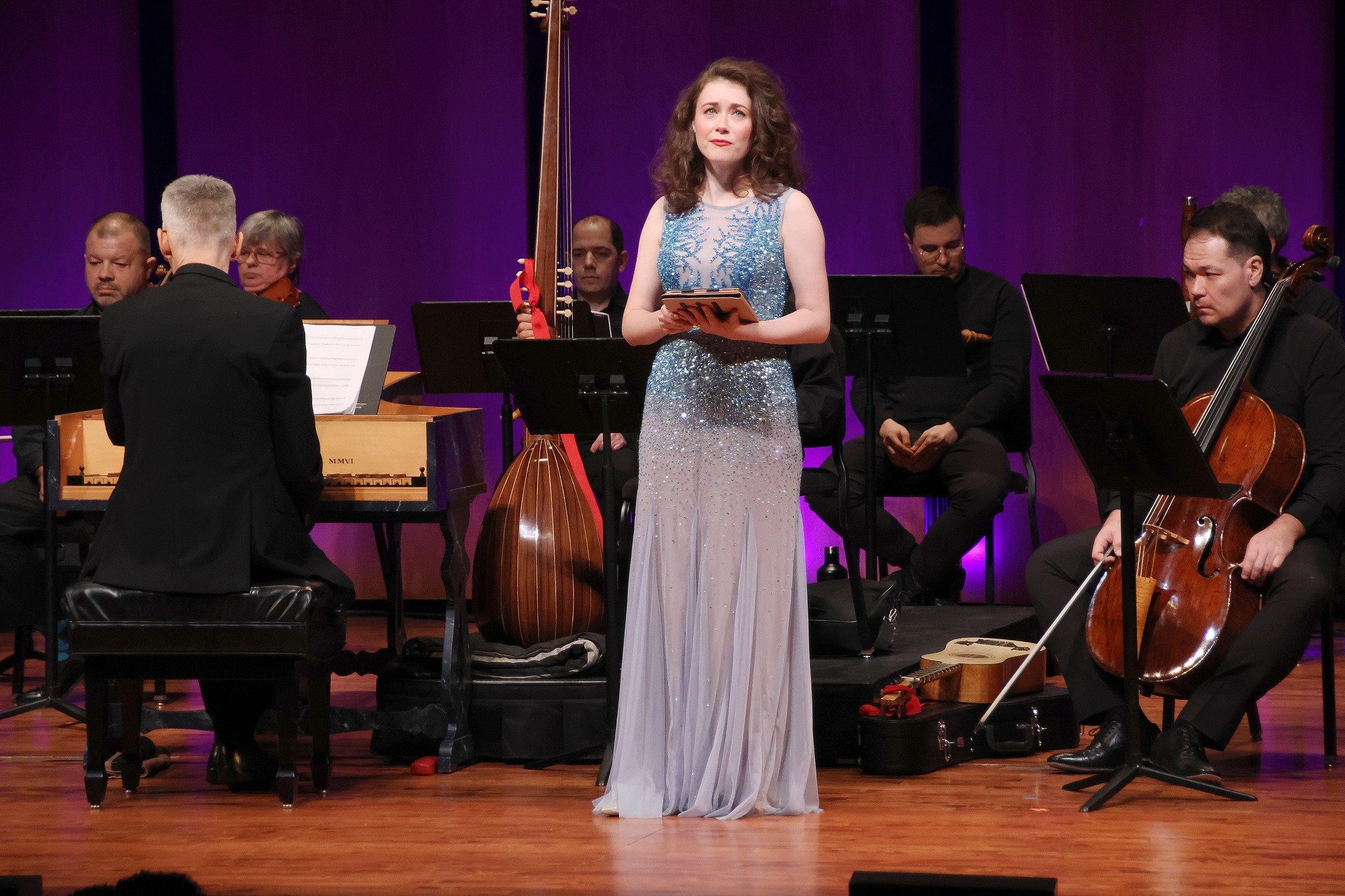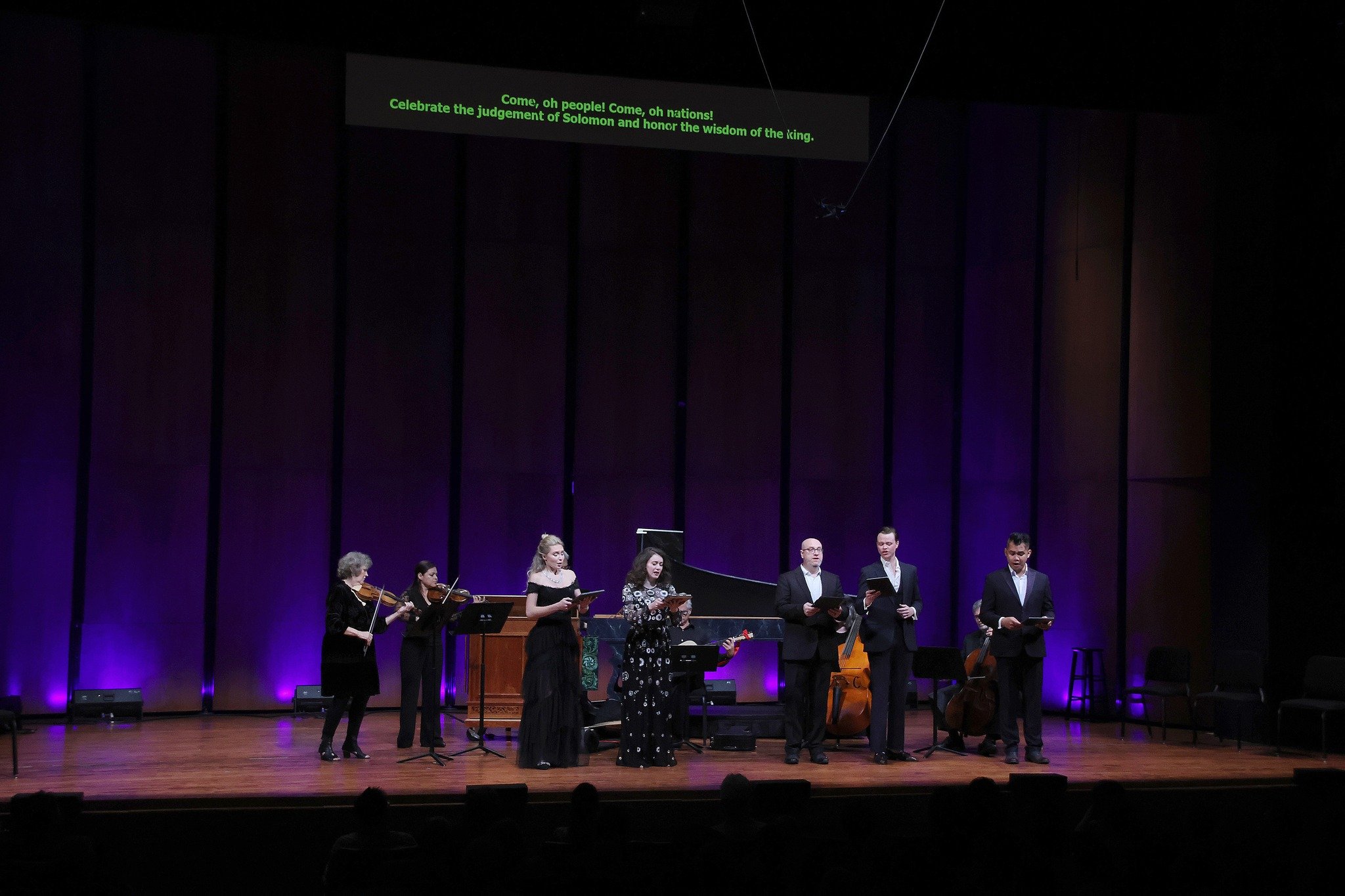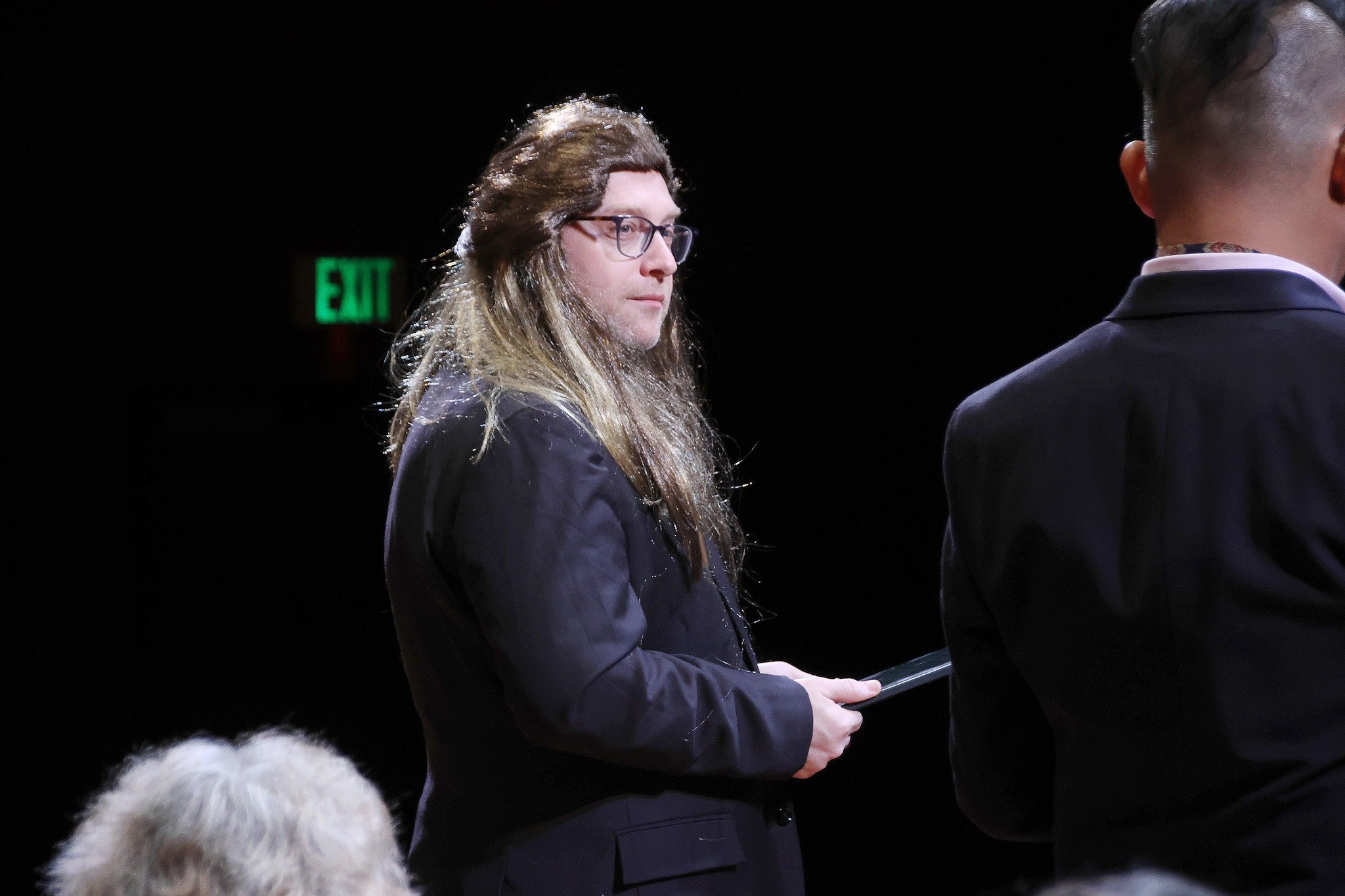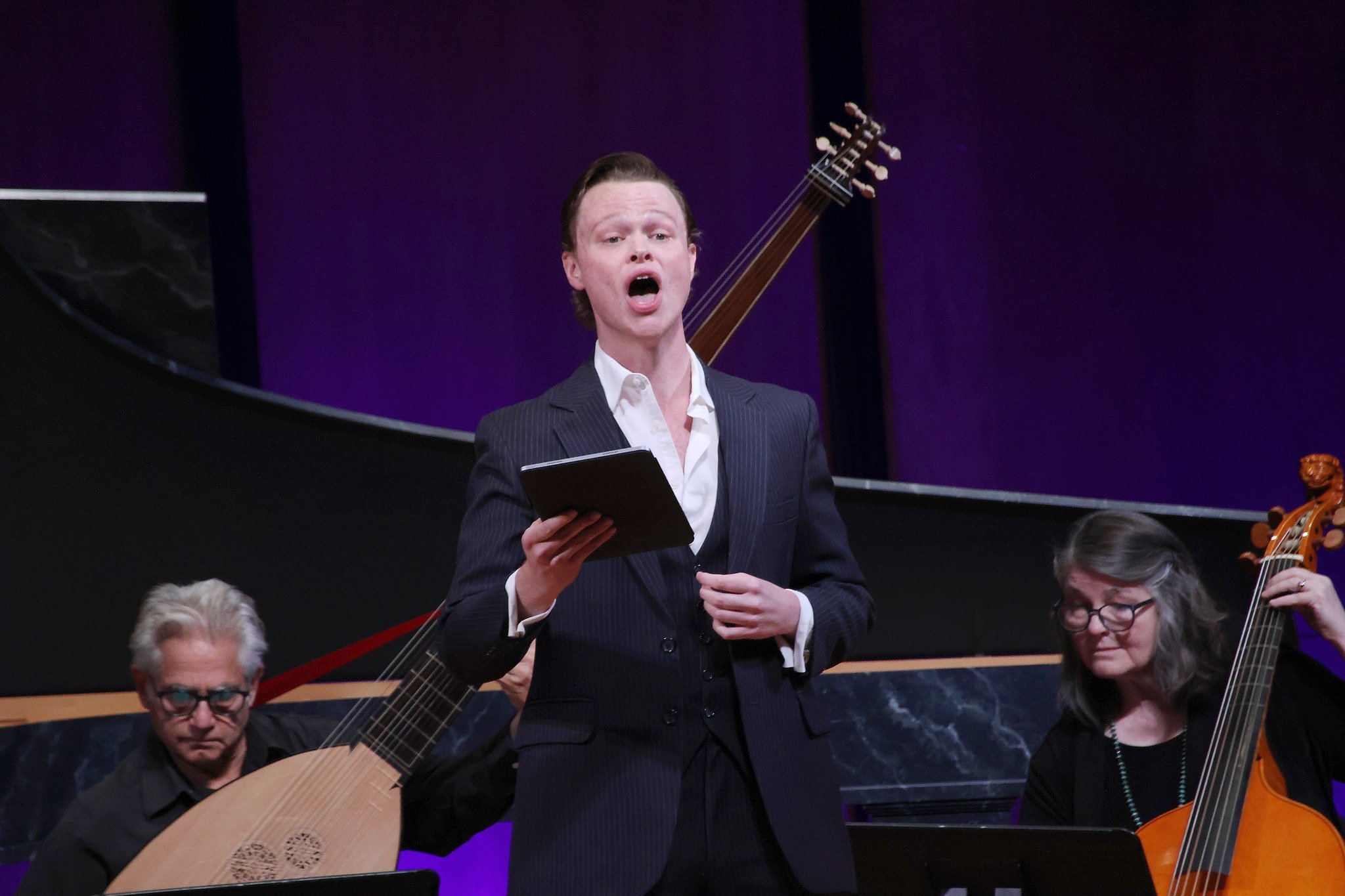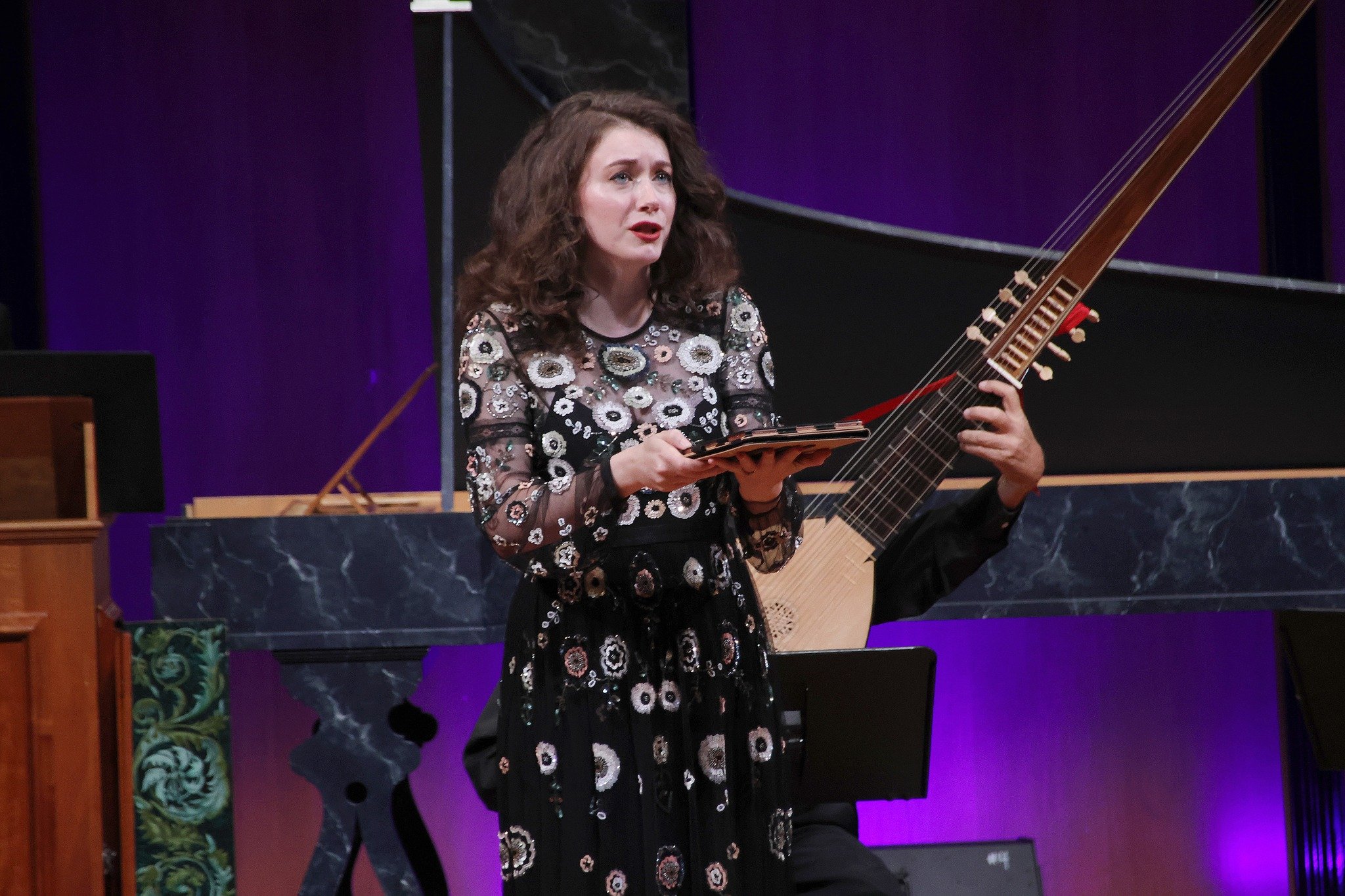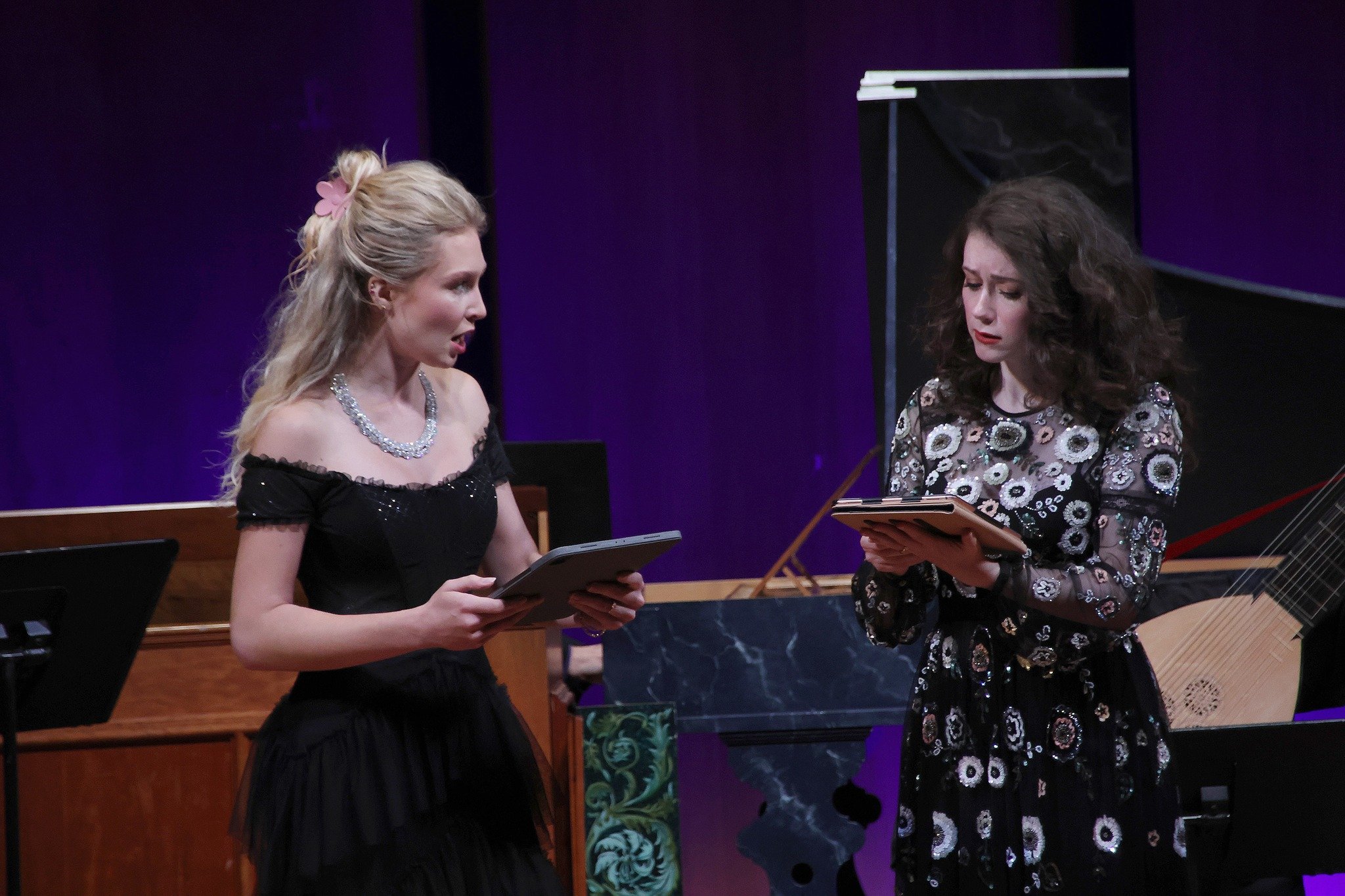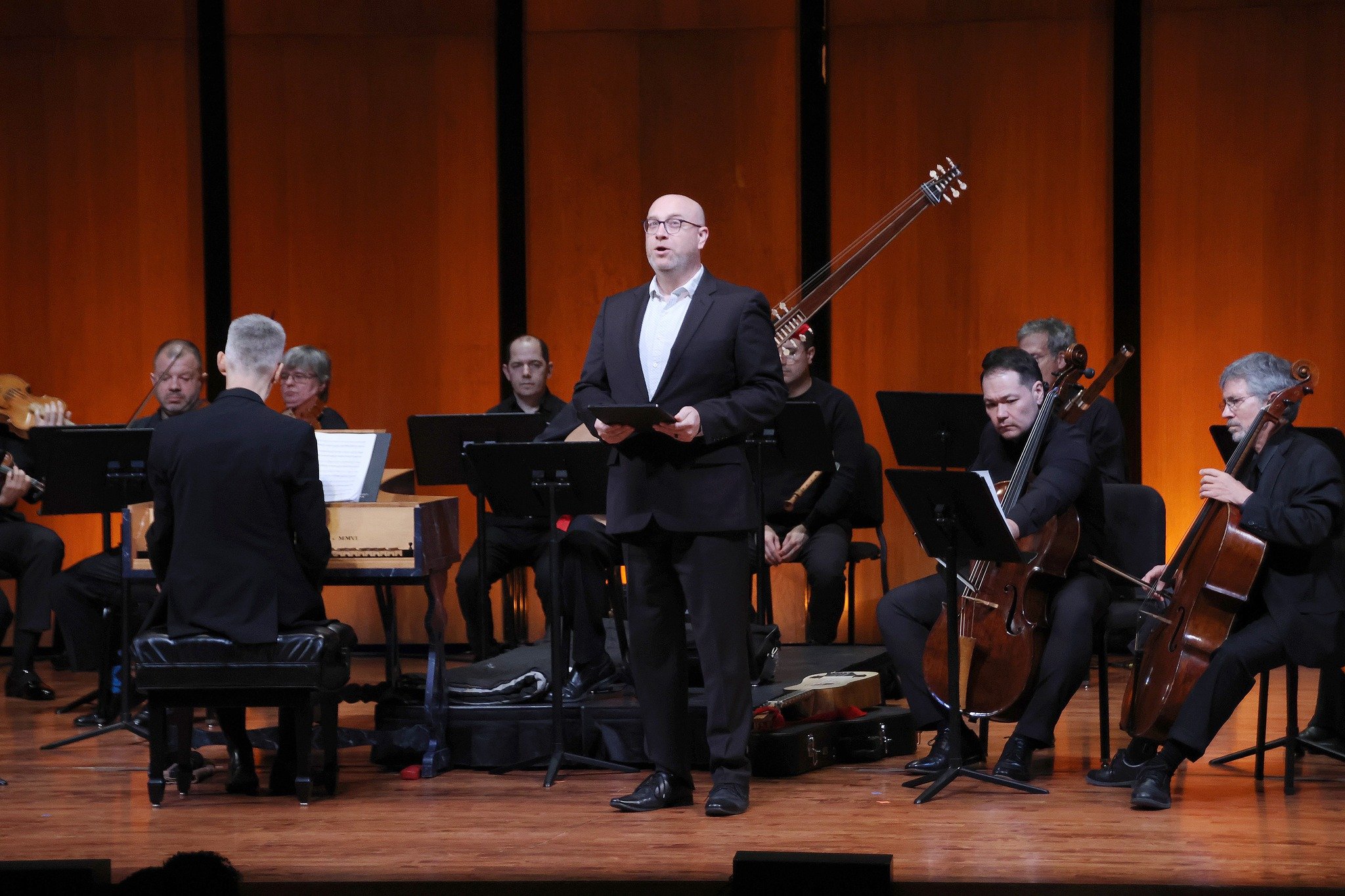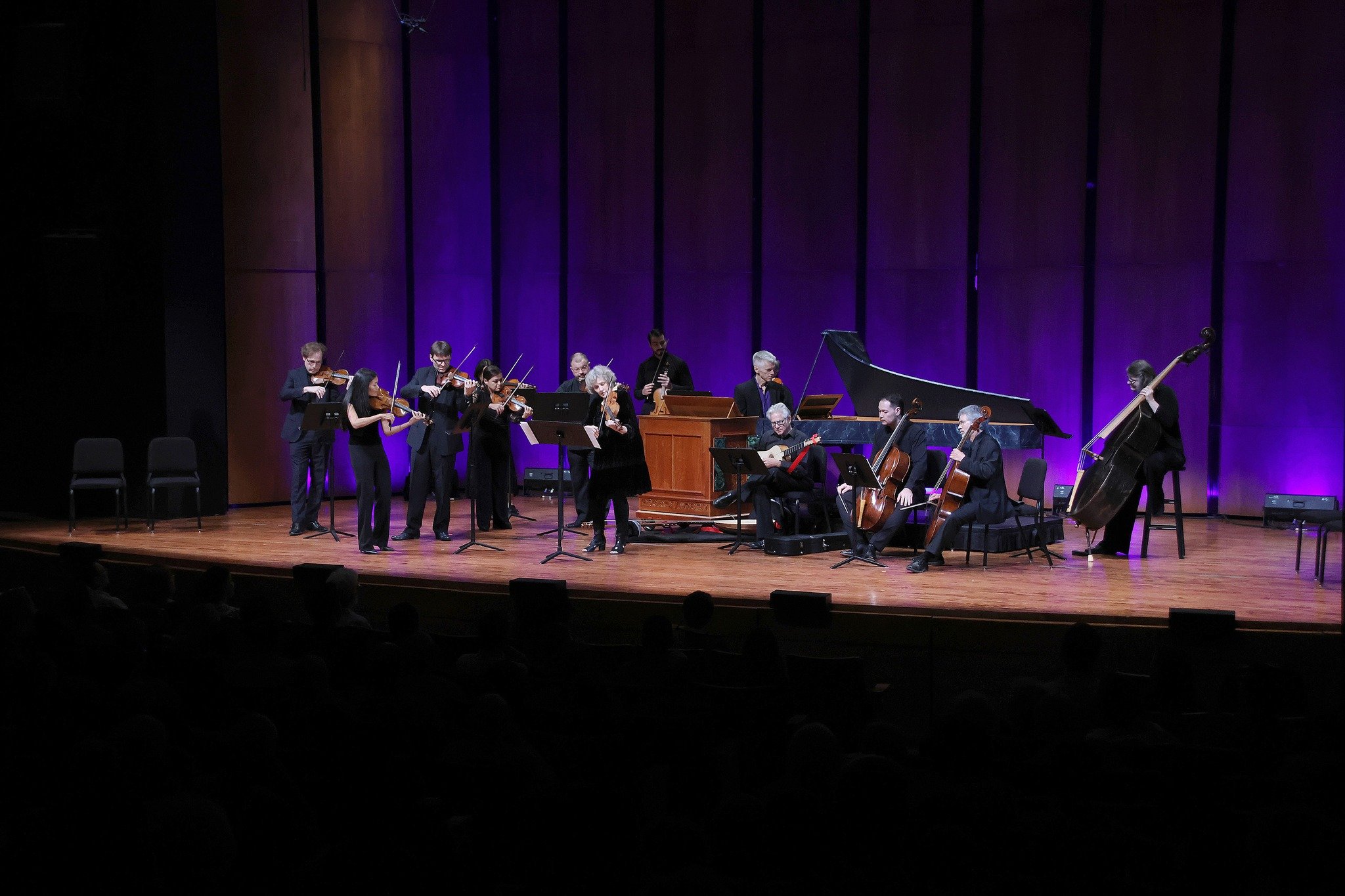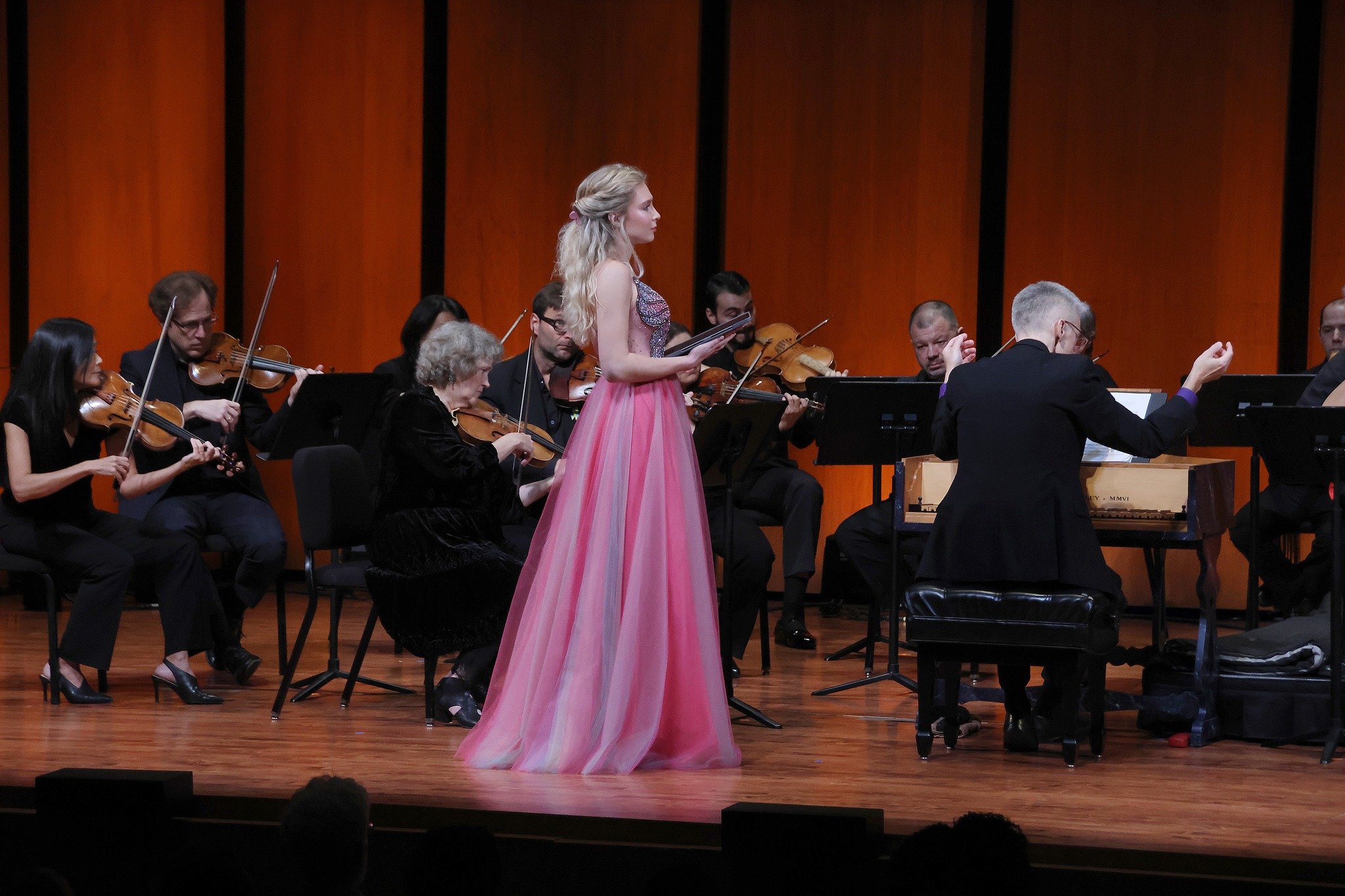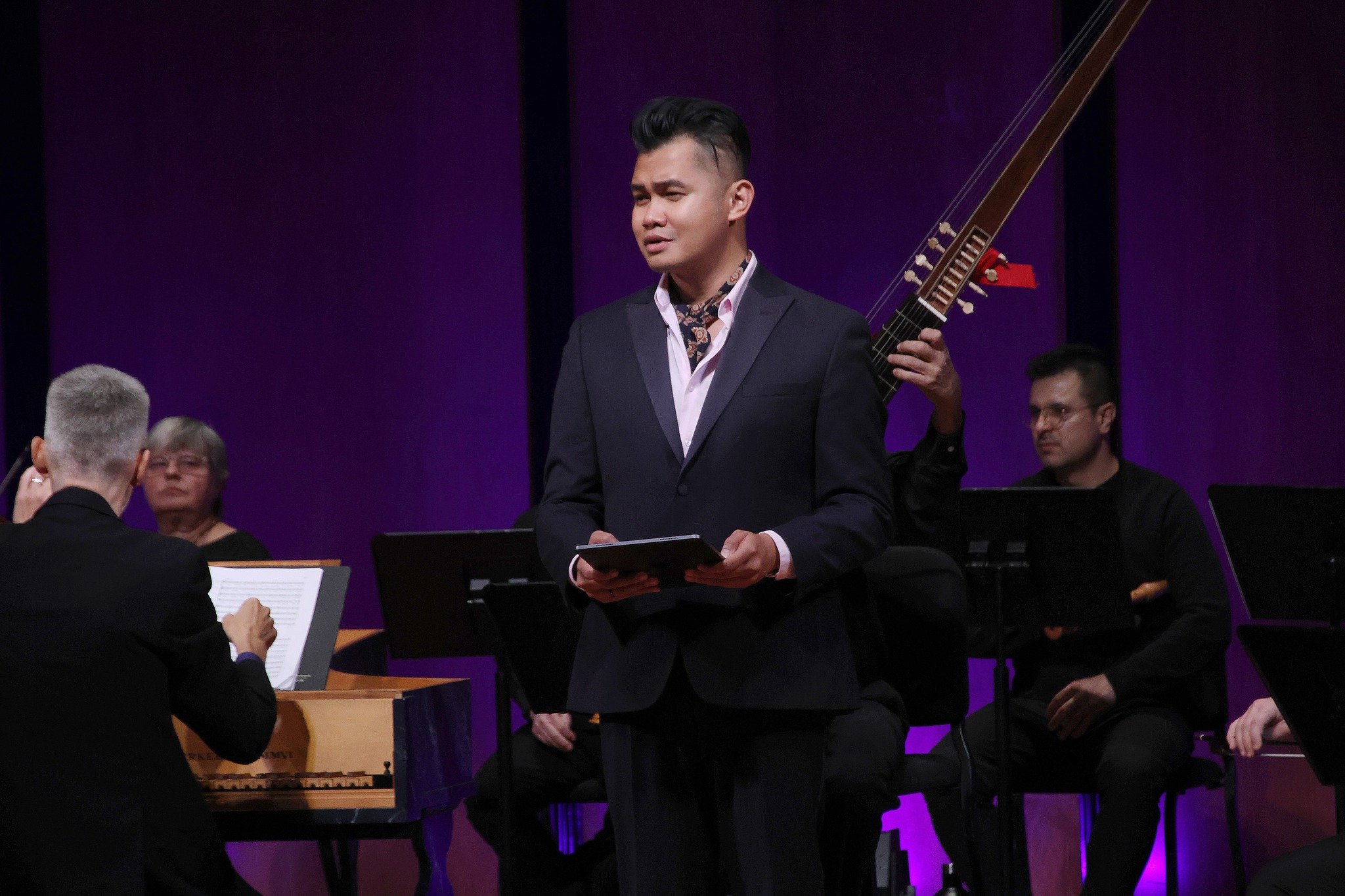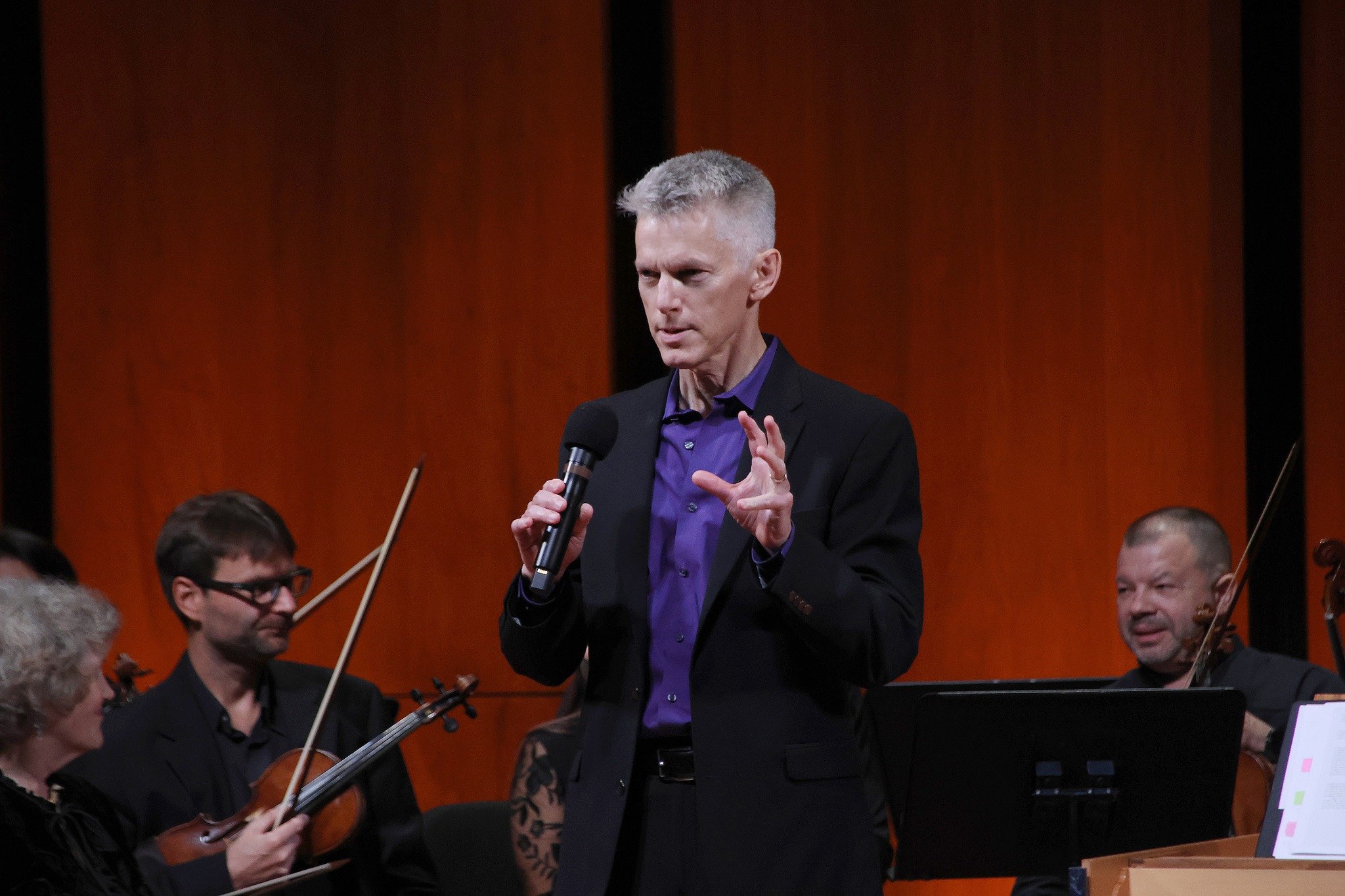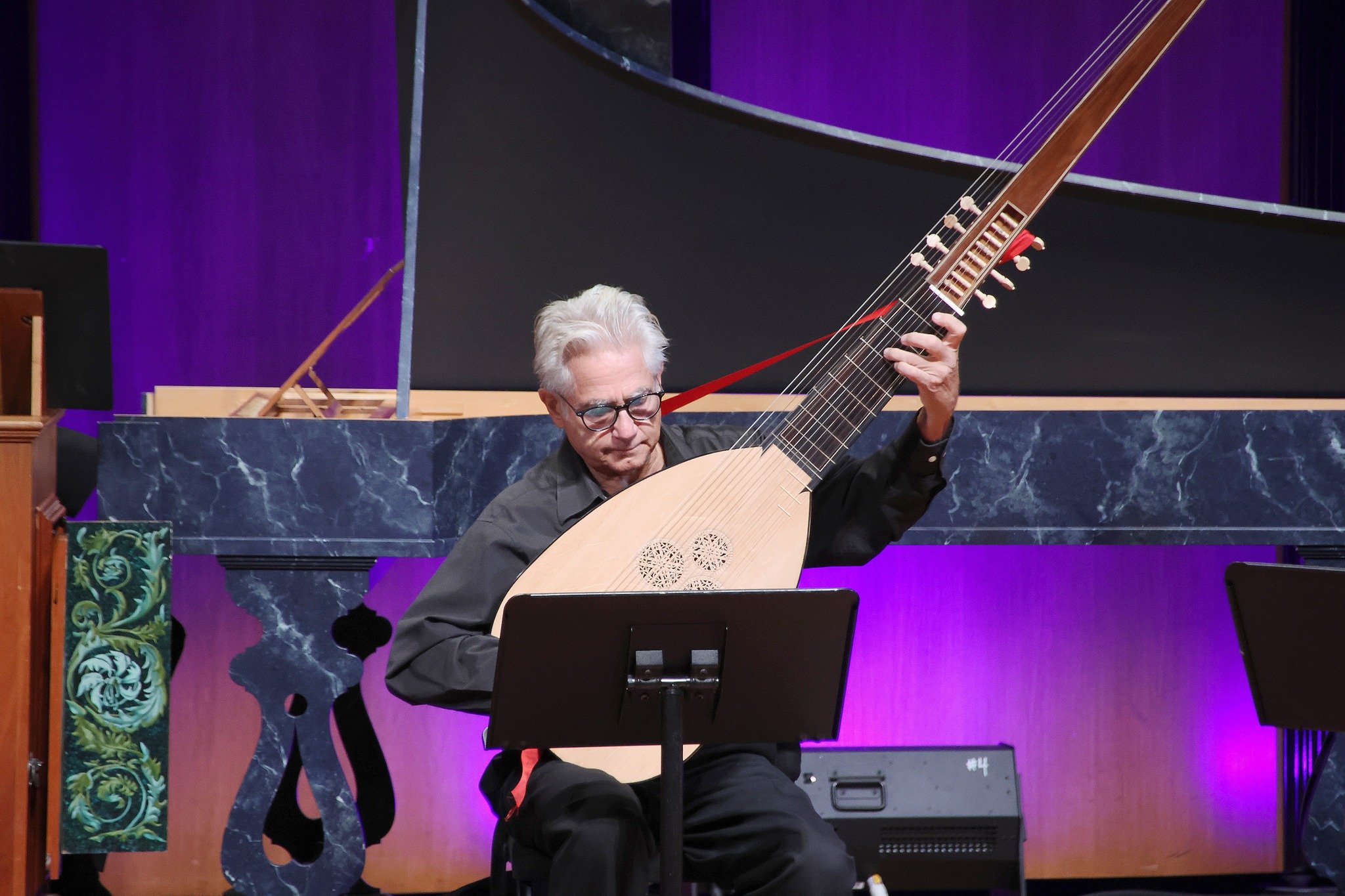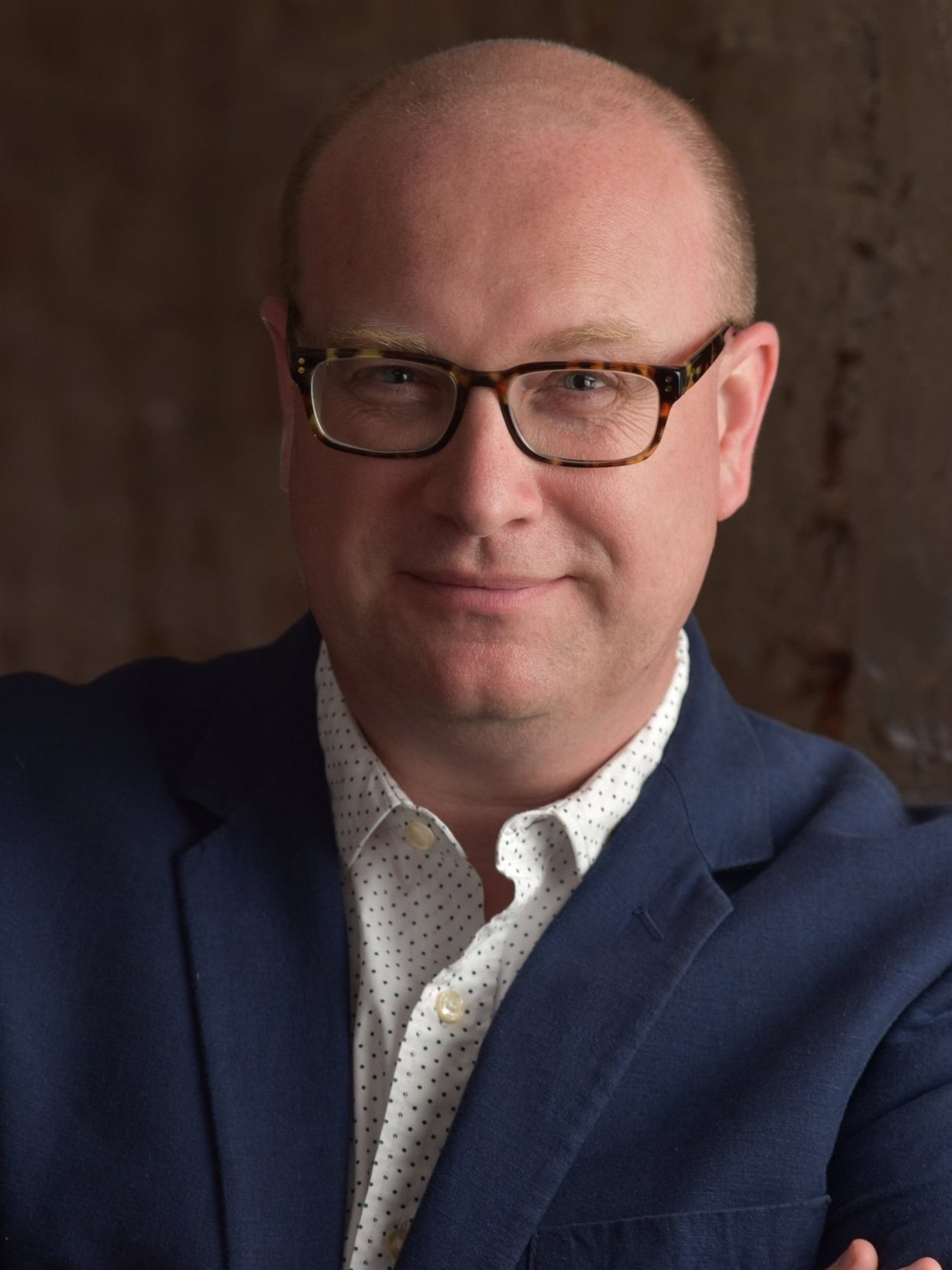Fallen Angels
Friday, September 22, 2023 at 7:30 PM
Zilkha Hall, The Hobby Center for the Performing Arts
Google Maps
Fallen Angels highlights the paranormal in Baroque music, from Giacomo Carissimi’s harrowing Judgement of Solomon to spirited masques from Henry Purcell’s Fairy Queen. With five extraordinary singers and a colorful Baroque orchestra of period strings and winds, this otherworldly program inaugurates an entire season devoted to musical magic of various kinds.
Featuring:
Nola Richardson, soprano
Eliza Masewicz, soprano ˚
Jay Carter, countertenor
Thomas O’Neill, tenor
Enrico Lagasca, bass-baritone ˚
˚ Ars Lyrica debut
This concert has passed, but digital replay passes are available for purchase here.
Audience Testimonials and Photos
“The exquisite sound of the celestial voices and of the orchestra's elegant performance was so entrancing that I did not want the evening to end. Every Ars Lyrica program is a work of sublime art.” - Patricia L.
"It is difficult to find new superlatives for Ars Lyrica Houston concerts because each concert over the years has been "The Best" and Fallen Angels was, yes, "The Best Ever"."
“The spirit that resonates from deep inside the performers to touch one with such pleasant and serene emotions that linger far after I leave Zilkia Hall, and the soul feels rejuvenated once again. Thank you for all you are and all you do!” - Debbie F.
“The combination of selected works, introduction of each piece to set the stage and our expectations, the beautiful voices of the opera singers, and the melodious and unique baroque strings and winds made the experience delightful. We loved that the selections were short yet impactful, and that they included some fun in the mix with a Midsummer Night’s Dream. Well done!” - Sandra P.
Photos by Pin Lim. Please see our Flickr for more photos.
Concert information
Season subscriptions and single tickets
This concert has passed, but Digital Subscriptions and Digital Replay Passes are still available!
Digital: The online concert broadcast of this performance is available to digital subscribers and Digital Pass holders. The concert broadcast link will be emailed to digital patrons on the morning of the performance, and the replay will be available all season long.
On the program
Giacomo Carissimi, Judicium Salomonis
Alessandro Scarlatti, Cello Sonata in C minor
Henry Purcell, In Guilty Night
Vivaldi, Op. 9 “La cetra,” Violin Concerto in G Minor, RV 334
Henry Purcell, Excerpts from The Fairy Queen
Run Time
1 hour and 45 min, including intermission
All texts are projected in English surtitles.
Concert preview in Houston CityBook
"Solomon and Shakespeare, demons and drunk poets, necromancers, and other crazy people. Expect all of this and more Friday, Sept. 22, when Houston's early-music ensemble Ars Lyrica opens its season with Fallen Angels, a dramatic evening of beautiful singing accompanied by authentic period instruments, celebrating what Artistic Director Matthew Dirst and harpsichord master describes as 'the paranormal in Baroque music.'"
Our thanks to Chris Becker at Houston CityBook for this fantastic preview of our season opener, focused especially on soprano Eliza Masewicz and her debut performance with Ars Lyrica Houston!
About the artists
˚ Ars Lyrica debut
-
The career of the Roman composer Giocomo Carissimi spans one of the most profound evolutions in music, from the unaccompanied counterpoint of Palestrina to the modern operatic style of Monteverdi. A master of the newly expressive vocal style of his day, Carissimi perfected the oratorio, which explores a sacred or moralistic text in an operatic manner. Typically scored for multiple voices and instruments, the Baroque oratorio takes its name from its initial venue: the church oratory, a space for activities other than the celebration of mass. Its extraordinary popularity in seventeenth-century Rome owes much to the changing fortunes of local opera: during periods of papal prohibition, the oratorio supplied music-loving patrons with biblical drama instead.
Judicium Salomonis recounts the Old Testament story of King Solomon and the two women who both claim the same child. The King’s initial ruling, to cut the baby in half for equal distribution, is set aside once one of the women rejects this cruel bargain. Because she saves life of the child, the wise Solomon rewards her alone. Carissimi’s oratorio focuses on the increasing desperation of the two women and the eventual thanksgiving.
The Sonata in C Minor for cello and continuo by Alessandro Scarlatti, one of three such works from this master of opera seria, is by turns darkly brooding and intensely sweet. Our program excerpts its first and second movements, which provide a suitably dramatic prelude for an unnerving little masterpiece by Scarlatti’s exact contemporary Henry Purcell. Standing somewhat outside traditional genres, In Guilty Night is a musical horror story adapted from the Book of Samuel. Mighty Saul, having led the Israelites to victory multiple times, faces significant challenges in old age. As a decisive battle with the Philistines draws near, he entreats his dead predecessor Samuel through a medium. But for poor Saul the fabled Witch of Endor and the ghost of Samuel offer only gloom and doom.
In 1727 Antonio Vivaldi published as his Opus 9 a set of twelve concerti, mostly for solo violin, which he dedicated to Emperor Charles VI under the title La Cetra. The latter name, which alludes to the cittern or lyre, connects the collection to Orpheus himself, whose musicianship charmed the gatekeepers of hell. With characteristic flair, Vivaldi channels the familiar myth in his Concerto in G Minor from this set. Its strongly etched themes, dramatic cascades of notes, and slithery chromaticism conjure a magical world of dark yet vivid spirits.
With spectacular scenery, elaborate costumes, vibrant dancing, and memorable music by Henry Purcell, The Fairy Queen opened in May 1692 to great acclaim. Audiences flocked to see the inaugural London production, which had been advertised widely in the English press since the previous fall. Its financial backers, who had invested a considerable sum of money in this reworking of a venerable play with new music, were surely gratified by its success.
What to call such a work? After the restoration of the monarchy in 1660, stage works in Britain were often ad hoc affairs, with most including either incidental music or interpolated “masques” that amplify or expand a spoken drama. The Fairy Queen was conceived in the latter mode, as a semi-opera adapted from Shakespeare’s A Midsummer Night’s Dream.
Tonight’s program draws excerpts principally from its music for Acts II and III, which serve as entertainments for Queen Titania, who (along with her husband Oberon) commands the fairies in the original drama. We begin in Titania’s forest grotto, with calls for a woodland music including echoes. The orchestra obliges, followed by a lively chorus and a spry dance. Next up are Night, Mystery, Secrecy, and Sleep, who expound their respective talents separately then together in song, as the company lulls Titania to sleep.
The ruse works, thanks a magic spell administered by Puck. Oberon’s potion (as you may recall) causes Titania to fall in love with Bottom, one of the Rude Mechanicals, who has been transformed into an ass. Bittersweet love prompts some truly eloquent music exploring human vulnerability (“If Love’s a sweet passion” and “Ye gentle spirits of the air”). Next up is a new comic subplot concerning Coridon, a hearty and somewhat randy fellow, and Mopsa, a surly yet very proper drag queen who refuses his advances. A nymph then offers a delightfully cynical take on love (“When have I often heard young maids complaining”), prompting a rollicking dance for the assembled Haymakers. Our suite concludes with a blessing of sorts from Act V (“Thus happy and free”).
© Matthew Dirst
